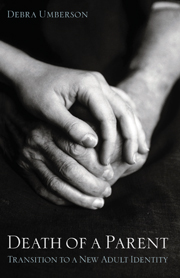Book contents
1 - ORDINARY LOSS, EXTRAORDINARY CHANGE
Published online by Cambridge University Press: 30 July 2009
Summary
A myth supported by most theories of pre-adult development is that at the end of adolescence you get yourself together and, as a normal, mature adult, you enter into a relatively stable, integrated life pattern that can continue more or less indefinitely. This is a rather cruel illusion since it leads people in early adulthood to believe that they are, or should be, fully adult and settled, and that there are no more major crises or developmental changes ahead.
PSYCHOLOGIST DANIEL LEVINSON AND COLLEAGUESYou can expect to feel terrible for a while…. You won't know what a parent's death is like until it happens to you…. It may be a common experience but common experiences can have profound effects.
JAMES, AGE THIRTY-EIGHTIt was unusual for a middle-aged adult to have a living parent only a few decades ago. Today, it is common. In fact, parents are not expected to die until they reach old age; it is not unusual now for the lifespans of parents and children to overlap by a period of fifty years or more. At the same time, childhood has changed over time in Western cultures so that the period of our dependency on parents is longer than ever before.
- Type
- Chapter
- Information
- Death of a ParentTransition to a New Adult Identity, pp. 5 - 14Publisher: Cambridge University PressPrint publication year: 2003



